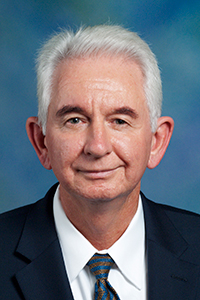New Study Demonstrates Non-Invasive tDCS Brain Stimulation Can Enhance Cognitive Control in Schizophrenia Patients
New Study Demonstrates Non-Invasive tDCS Brain Stimulation Can Enhance Cognitive Control in Schizophrenia Patients

Impaired cognition—operations of the brain that enable people to understand and react to the world that surrounds them—is one of the aspects of schizophrenia that makes it hard for patients to function successfully in society.
Cognitive deficits are among the most disabling and treatment-resistant aspects of schizophrenia, and include difficulty learning and retaining information as well as paying attention and using “working memory,” a form of short-term memory needed for tasks immediately at hand.
Reporting in the journal Neuropsychopharmacology, a team of clinical researchers now reports early success in using a method of non-invasive brain stimulation called tDCS (transcranial direct current stimulation) to improve the ability of patients with schizophrenia to perform an important type of cognitive task. The task calls for “proactive cognitive control”—the ability to mentally prepare to respond to an upcoming challenge by observing context and rules.
The team’s senior member was Cameron Carter, M.D., of the University of California, Davis. He is a member of the BBRF Scientific Council and a 2007 BBRF Distinguished Investigator, 2001 BBRF Klerman Prize winner and 1997 and 1994 Young Investigator. First author of the paper reporting the results was Megan Boudewyn, Ph.D. Katherine Scangos, M.D., Ph.D., a 2018 BBRF Young Investigator, was also part of the team.
The researchers recruited 27 patients diagnosed with schizophrenia or a schizophrenia spectrum disorder. They were divided in two groups, one of which received a 20-minute tDCS treatment before being asked to perform a task requiring proactive cognitive control. Members of the other group received a “placebo” version of tDCS stimulation before the task.
Days later, members of the two groups returned, with those who had received placebo now receiving active tDCS stimulation and those who had received active stimulation now getting the placebo version. The groups were blinded, meaning participants didn’t know when they were getting real or placebo tDCS stimulation.
The placebo version of tDCS provided participants with the sensations of the “real thing,” but with active current not being delivered beneath the scalp. It is thought that the “real” version of tDCS alters the excitability of neural networks in the brain where the current is targeted. How that generates potentially therapeutic effects remains a question under study.
In the trial, the active tDCS treatment was targeted to the brain’s dorsolateral prefrontal cortex, a brain area linked in past research with a type of brain-wave activity thought to underlie proactive cognitive control. The waves affected are called gamma-band waves, and are created by neural activity oscillating between 30 and 80 times per second. Called “high-frequency” waves, they are broadly linked with cognition and are thought to operate over short distances in the brain. Their strength is measured using a technology called EEG, or electroencephalogaphy.
The task that participants had to perform, minutes after their (real or placebo) tDCS session, was designed to show how well they could use cues to prepare successfully for a visual task. It measured the ability to anticipate and make use of cues.
EEG measurements enabled the team to conclude that tDCS stimulation enhanced brain-wave activity in the gamma band within the prefrontal region of the cortex. This was related to the period of delay in anticipating cues. The net effect was that active tDCS—as opposed to placebo—“significantly enhanced proactive cognitive control” in this comparatively small sample of schizophrenia patients.
The team said their results justify conducting a larger study to replicate their result. They have begun such a study, which aims to enroll a larger number of participants. The team said that further research also should try to gauge the impact of schizophrenia medications, if any, on cognitive effects induced by tDCS treatments.



